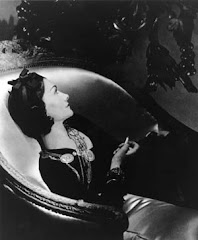Anita Amirrezvani* The Blood of Flowers
Stella Duffy The Room of Lost Things
Jennifer Egan The Keep
Anne Enright The Gathering
Linda Grant The Clothes on Their Backs
Tessa Hadley The Master Bedroom
Nancy Huston Fault Lines
Gail Jones Sorry
Sadie Jones The Outcast
Lauren Liebenberg The Voluptuous Delights of Peanut Butter and Jam
Charlotte Mendelson When We Were Bad
Deborah Moggach In The Dark
Anita Nair Mistress
Heather O'Neill Lullabies for Little Criminals
Elif Shafak The Bastard of Istanbul
Dalia Sofer The Septembers of Shiraz
Scarlett Thomas The End of Mr Y
Carol Topolski Monster Love
Rose Tremain The Road Home
Patricia Wood Lottery
*I met Anita at the Adelaide festival and liked her very much. She is an Iranian-American whose parents left at the time of the 1979 revolution.
Discussion of the longlist here. and here. As usual there is the conventional moaning about the list excluding men, moaning which is curiously absent when it comes to any of the other literary prizes and their exclusions. I'd love to win the Pulitzer but as I'm not an 'American author', I can't.
Maureen Freely on the Guardian books blog, has an excellent piece addressing the inanities of the 'sexism' complaint:In my view, the most significant thing about the Orange Prize is not that it is only for women. The prize's great virtue is that it is for all women writing in English. Most prizes, most notably the man Booker, respect (and so enforce) national boundaries. This despite the fact that national boundaries in Anglophone fiction became less significant with every passing day.I've often wondered how many of our national treasures here in Britain would fare if they were pitted against a shortlist that included writers such as Roth and Ford or Orhan Pamuk and David Grossman.
A quick look at the 2008 Orange long list bears this out. There are seven countries represented, eight if you include both nationalities claimed by the US/Iranian first novelist Anita Amirrezvani. Dalia Sofer, listed as an American author, is also Iranian by birth. Elif Shafak, though she carries a Turkish passport, was born in France. Later in life, she spent many years in the US. Though she writes mostly in Turkish, The Bastard of Istanbul, her seventh novel, is her second novel in English. Like so many of their readers, these authors are hybrids, and they are much better served by a panel that isn't bothered by that.

4 comments:
Congratulations LInda!
Way to go -- I'm going to have to finish reading all the entries...by the way why is there so much whining -- did they notice that there have been only 10 women nobel winners for literature out of 104?
I've read Jennifer Egan's "The Keep." I enjoyed it very much and I would heartily recommend it. I can't wait to get my hands on your book. I'm in California and I haven't seen it yet. I have a question for you (sorry!). As an author, do you prefer people buy your book to read it or do you mind if they get it at the library. I guess my question is: do you want people to read it or pay for it and read it. This question is not meant to be rude, I hope it is not taken as such.
Rose Tremain's book is great, it's tough and authentic.
I like the cover of yours, and am looking forward to seeing what's inside.
In answer to your questions, Tessa, my nivel lacks, as yet an American poublisher ('too British' was the last verdict) so if you want to read it you'll have to order it from an on-line bookseller such as Amazon, either in the UK or Canada. Secondly, what I want is for my readers to buy my book (thus helping me earn out my advance), then stock up on a further 10-20 copies to give as presents to their friends and relations, and then write a letter to their library urging them to stock it.
Post a Comment